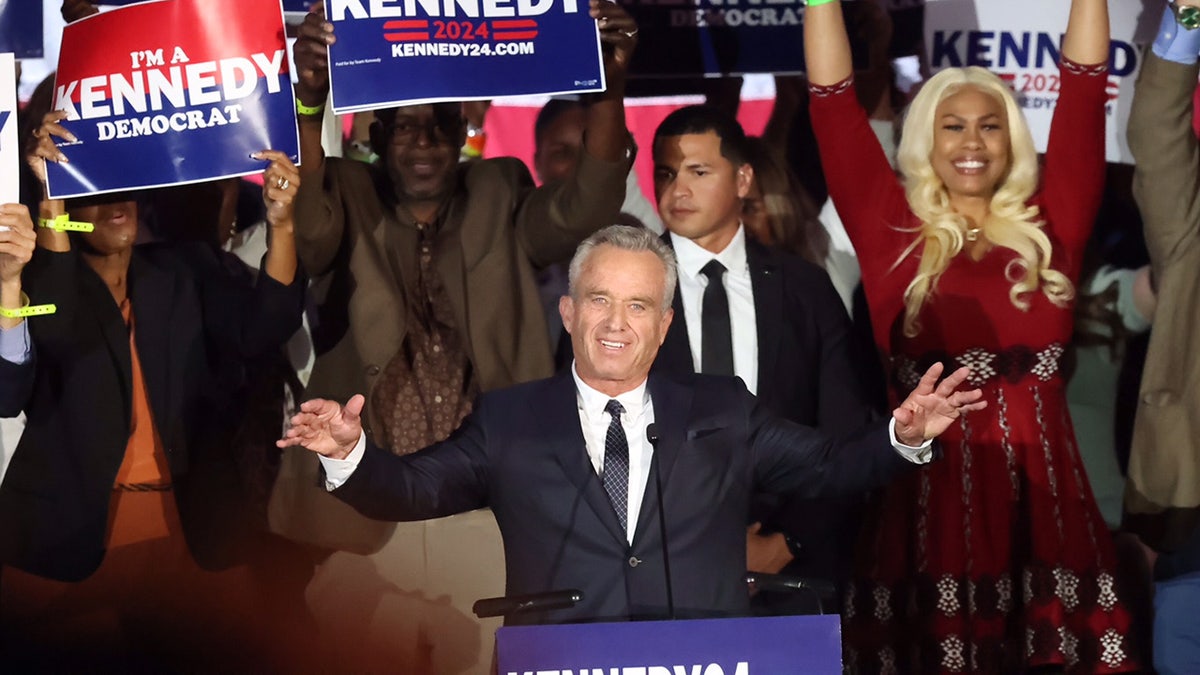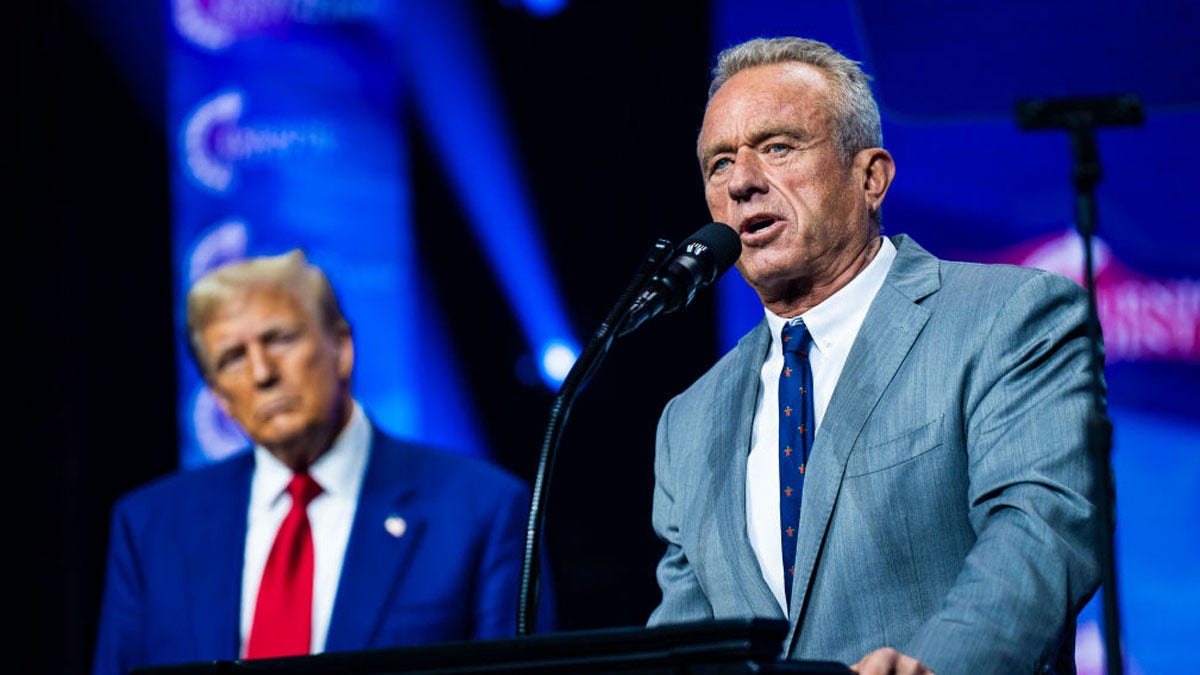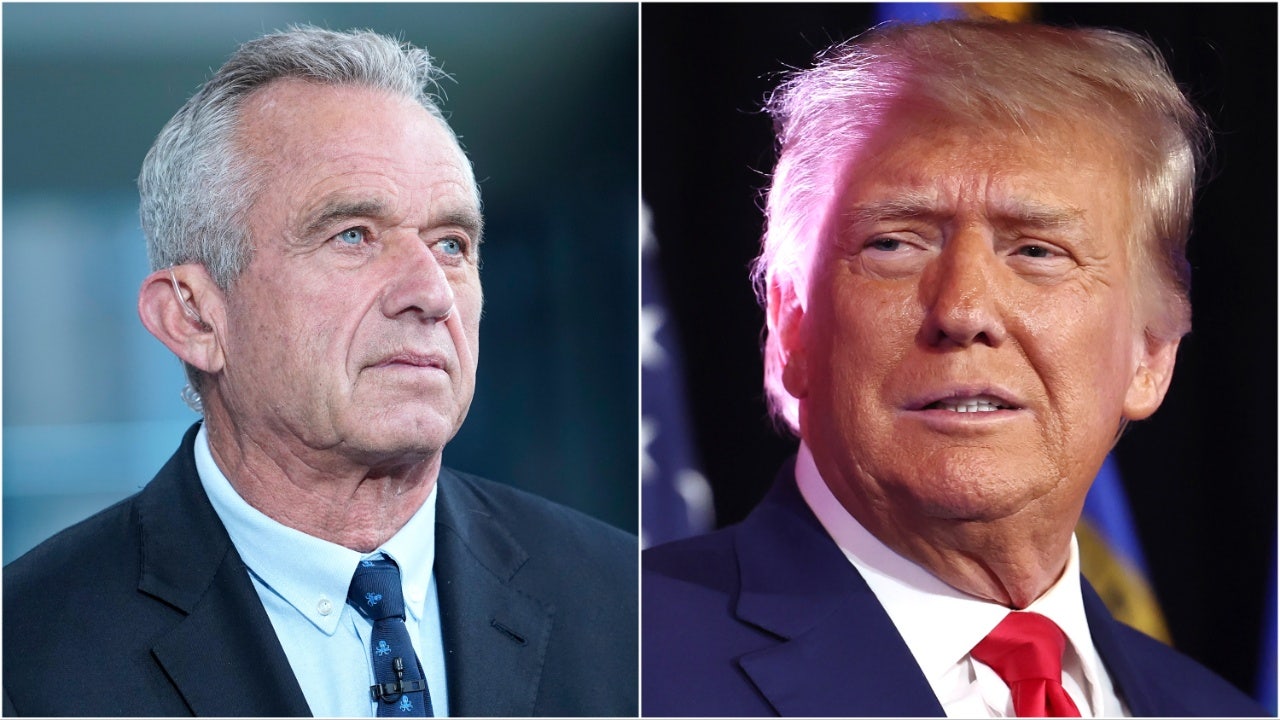What's Wrong With RFK Jr.'s Voice? Unpacking The Controversy
In recent years, discussions around Robert F. Kennedy Jr.'s voice have sparked considerable debate within political and media circles. Critics and supporters alike have weighed in on the distinct tone, cadence, and delivery of RFK Jr.'s speeches and public appearances. But what exactly is the issue with RFK Jr.'s voice, and why does it matter? This article dives deep into the controversy, exploring the nuances of his vocal style and its implications on public perception.
RFK Jr.'s voice has become a focal point of discussion as he increasingly steps into the political spotlight. As a prominent figure in American politics, his vocal characteristics are scrutinized by the media and the public alike. Understanding the reasons behind this scrutiny requires an examination of both linguistic and psychological factors that influence how we perceive voices.
Throughout this article, we will explore the origins of the controversy, analyze the scientific aspects of vocal perception, and evaluate the impact of RFK Jr.'s voice on his credibility and effectiveness as a communicator. By the end, you'll have a comprehensive understanding of why his voice has become such a hot topic.
Read also:Revolutionize Your Nail Care Soak Off Acrylic Nails Without Acetone
Table of Contents
- Biography of Robert F. Kennedy Jr.
- The Voice Controversy Explained
- A Scientific Perspective on Vocal Perception
- Historical Context of Kennedy Voices
- Media Reactions and Public Opinion
- Psychological Factors Influencing Voice Perception
- The Impact on Politics and Communication
- Comparative Analysis with Other Political Figures
- Solutions and Advice for Effective Communication
- Conclusion and Final Thoughts
Biography of Robert F. Kennedy Jr.
Early Life and Education
Robert F. Kennedy Jr., born on February 17, 1954, is the third child of Robert F. Kennedy and Ethel Skakel Kennedy. Growing up in a politically influential family, RFK Jr. was exposed to the world of politics from an early age. He pursued higher education at Harvard College and the University of Virginia School of Law, laying the foundation for his career in environmental advocacy and law.
Professional Career
RFK Jr. is a renowned environmental lawyer and activist. He has dedicated much of his life to fighting for environmental justice and holding corporations accountable for environmental damage. His work with Waterkeeper Alliance and other organizations has earned him international recognition. Below is a summary of his key achievements:
- Co-founder of Waterkeeper Alliance
- Recipient of numerous environmental awards
- Author of several books on environmental issues
Biodata Summary
| Full Name | Robert Francis Kennedy Jr. |
|---|---|
| Date of Birth | February 17, 1954 |
| Place of Birth | Brookline, Massachusetts, USA |
| Education | Harvard College, University of Virginia School of Law |
| Profession | Environmental Lawyer, Activist, Author |
The Voice Controversy Explained
RFK Jr.'s voice has been the subject of debate due to its unique characteristics. Critics argue that his tone, pitch, and delivery can sometimes come across as monotone or lacking emotional resonance. This perception has led to questions about his ability to connect with a broad audience effectively.
Common Criticisms
Some of the common criticisms include:
- A perceived lack of enthusiasm in his speeches
- A voice that some find difficult to follow due to its pacing
- Potential misalignment between his vocal delivery and the gravity of his messages
A Scientific Perspective on Vocal Perception
Vocal perception is a complex process influenced by various factors, including tone, pitch, and intonation. Studies have shown that listeners often make subconscious judgments about a speaker's credibility, intelligence, and emotional state based on these vocal characteristics.
Factors Influencing Voice Perception
Several factors play a role in how we perceive voices:
Read also:Cast Of Nightmare Before Christmas A Deep Dive Into The Voices Behind The Classic
- Tone: The emotional quality of a voice can influence how listeners interpret a message.
- Pitch: Higher or lower pitches can evoke different emotional responses.
- Intonation: Variations in pitch and stress can convey emphasis and meaning.
Historical Context of Kennedy Voices
The Kennedy family has long been associated with powerful oratory skills. From John F. Kennedy's charismatic speeches to Robert F. Kennedy's passionate rhetoric, the family legacy includes a tradition of compelling public speaking. In contrast, RFK Jr.'s vocal style has been perceived differently, leading to comparisons and critiques.
Media Reactions and Public Opinion
Media outlets have covered the RFK Jr. voice controversy extensively, with varying perspectives. Some argue that his vocal style is a reflection of his authenticity, while others believe it hinders his effectiveness as a communicator.
Public Opinion
Public opinion on RFK Jr.'s voice is divided. Surveys and social media discussions reveal that while some admire his steadfastness, others find his delivery challenging to engage with.
Psychological Factors Influencing Voice Perception
Psychology plays a significant role in how we perceive voices. Cognitive biases and emotional responses can shape our interpretations of a speaker's message. Understanding these factors is crucial in evaluating the impact of RFK Jr.'s voice.
The Impact on Politics and Communication
In the realm of politics, effective communication is paramount. RFK Jr.'s voice has implications for his ability to convey his message to diverse audiences. This section explores how his vocal style affects his political endeavors.
Strategies for Improvement
Experts suggest that RFK Jr. could enhance his communication skills by focusing on:
- Varying his tone and pitch to add emotional depth
- Practicing vocal exercises to improve clarity and resonance
- Engaging with audiences through storytelling techniques
Comparative Analysis with Other Political Figures
RFK Jr.'s voice can be compared to other notable political figures, such as Barack Obama and Alexandria Ocasio-Cortez. Each has a distinct vocal style that contributes to their effectiveness as communicators. Analyzing these differences provides valuable insights into the role of voice in political communication.
Solutions and Advice for Effective Communication
For anyone seeking to improve their communication skills, the following advice can be helpful:
- Seek feedback from trusted peers and mentors
- Practice public speaking regularly to build confidence
- Study successful communicators to learn from their techniques
Conclusion and Final Thoughts
In conclusion, the controversy surrounding RFK Jr.'s voice highlights the importance of vocal perception in communication. While his vocal style may not resonate with everyone, it is essential to recognize the broader context of his contributions to environmental advocacy and politics.
We encourage readers to share their thoughts and engage in discussions about this topic. By leaving comments or sharing this article, you contribute to a deeper understanding of the role of voice in shaping public perception.
For further reading, explore our other articles on political communication and leadership. Together, we can continue to learn and grow in our understanding of effective communication.


